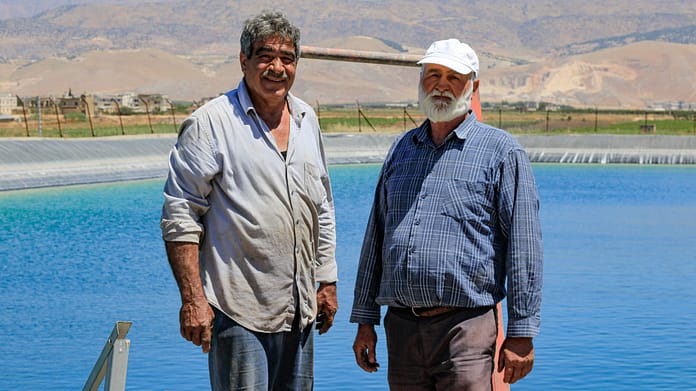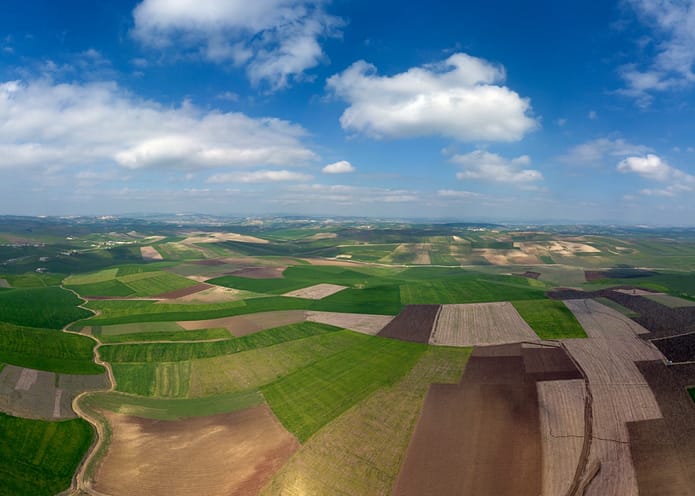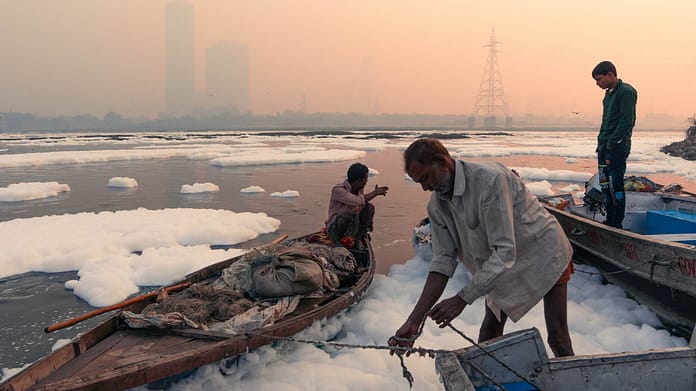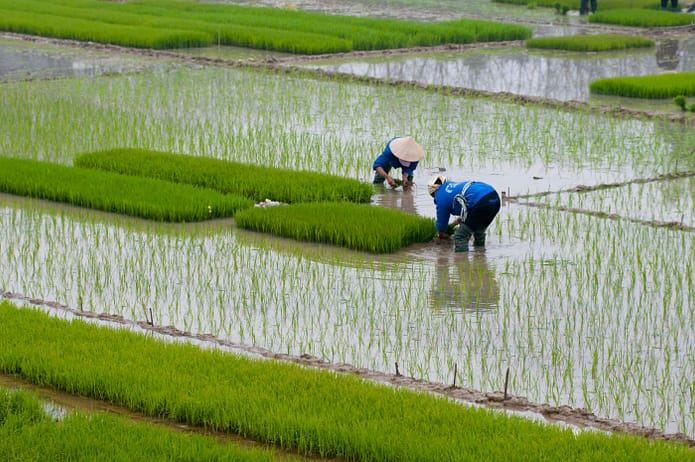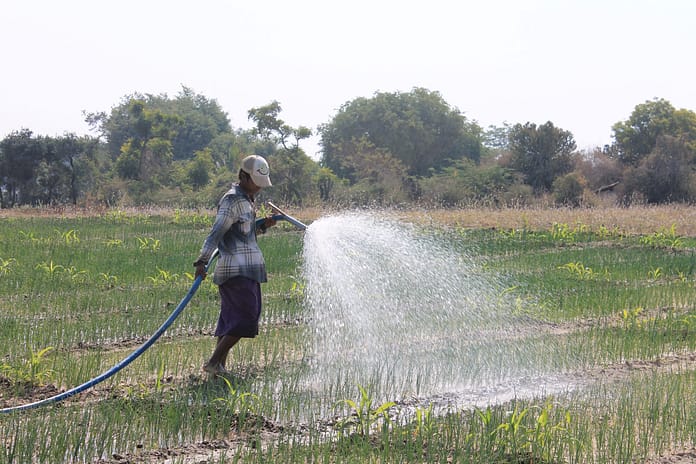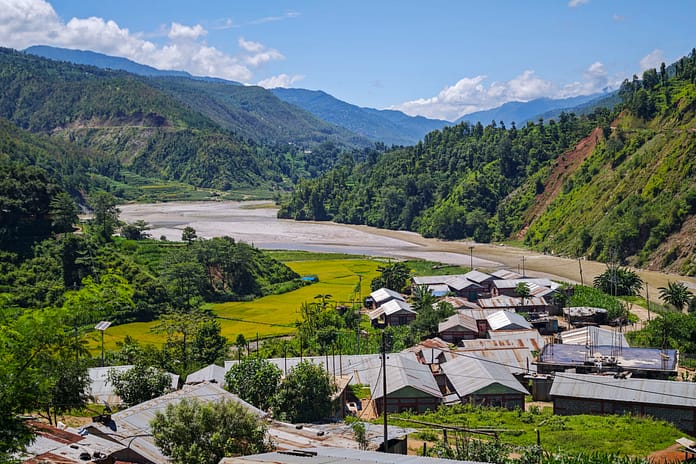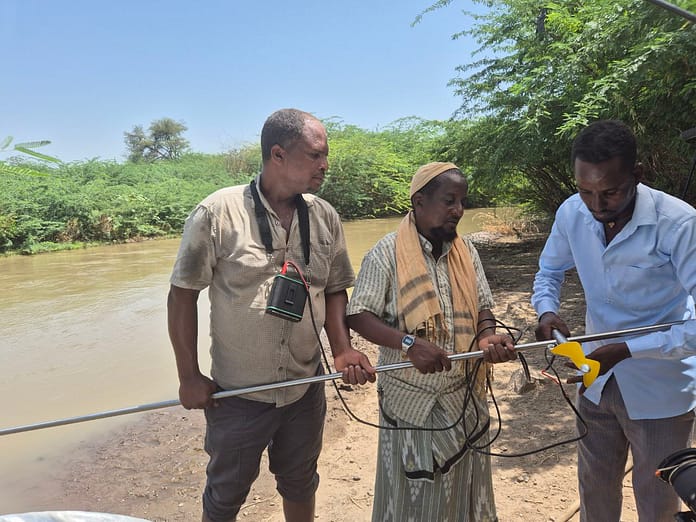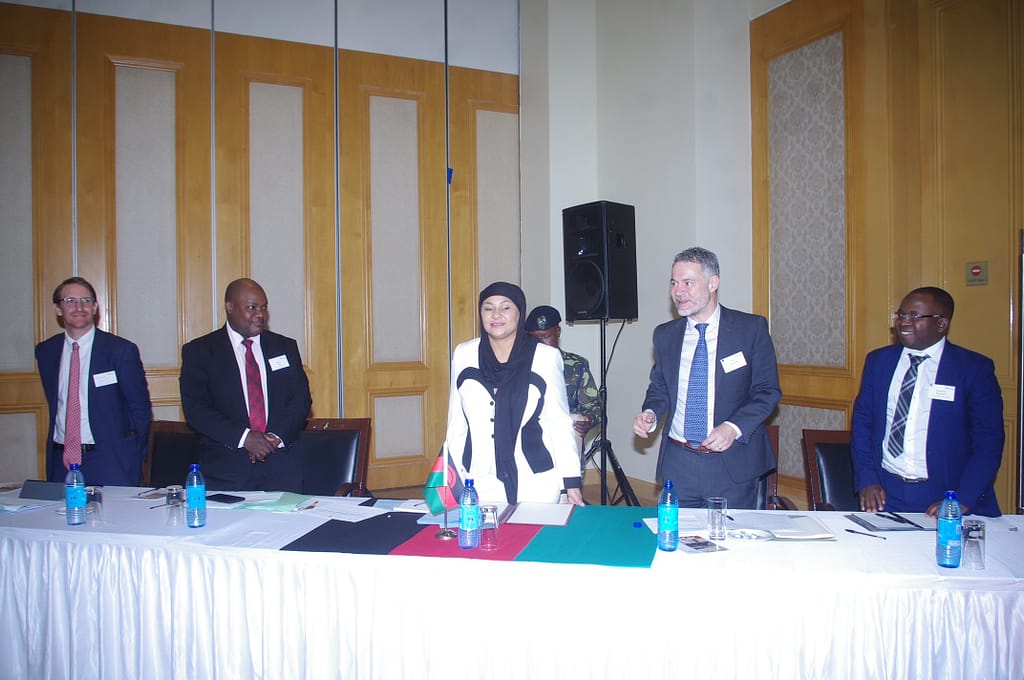
Malawi stands at a pivotal moment in strengthening its water resilience. With vast agricultural potential, expanding irrigation is critical for food security. But high infrastructure repair costs, limited water storage, and gaps in knowledge of the sustainability of groundwater resources present major challenges. Climate change further threatens water resilience, as increasingly frequent cyclones endanger rainfed farming communities. At the same time, poor sanitation and hygiene remain pressing concerns — only 26% of the population has access to basic sanitation, with significant urban-rural disparities. These conditions contribute to a heavy disease burden, costing Malawi $57 million annually, or 1.1% of its GDP, in health expenditures and productivity losses.
The first phase of IWMI’s Water Resilience Tracker (WRT1.0), which recently concluded, played a critical role in identifying these cross-sectoral challenges faced by Malawi’s agricultural and Water, Sanitation, and Hygiene (WASH) sectors, emphasizing the need for improved climate finance access, stronger project development capacity, and better resource alignment for policy implementation.
Given the urgency of these issues and the momentum built by WRT1.0, the International Water Management Institute (IWMI) leveraged its strong connections to the Malawi government. To discuss next steps for action, IWMI convened high-level decision-makers in March, including Principal Secretary for Natural Resources Yusuf Nkungula, both Minister and Director of Water Supply at the Ministery of Water and Sanitation Abida Sidik Mia and Prince Mleta, respectively, representatives from the National Planning Committee, such as Director of Research Joseph Nagoli, Climate Change Centre Manager of the Reserve Bank of Malawi Frank Khoza, CEO of the National Water Resources Authority of Malawi Dewight Kambuku and many others.
This marked the first time these key stakeholders gathered specifically to advance the broader Just Transitions for Water Security (JTWS) program and the WRT program’s efforts. Their participation demonstrated a firm political commitment to addressing the water security challenges identified in WRT1.0 and taking concrete steps toward solutions for WRT2.0. Despite the demands of an election period, the Minister of Water and Sanitation, Abida Sidik Mia, remained engaged whenever possible, underscoring the significance of this work. She was particularly vocal in her insistence that Malawi move beyond discussion to tangible action, reinforcing a renewed determination to build on the foundations laid during WRT1.0 and drive meaningful progress.
Setting water resilience into motion
The workshop led to several key outcomes, setting the stage for more strategic and coordinated action on water resilience in Malawi.
Building on insights from WRT1.0, participants defined Malawi’s most pressing water resilience priorities and determined how WRT diagnostics could support national objectives. Participants identified the most important gaps they need to close, including finance, technical capacity, and time limitations that constrain them from addressing these priorities efficiently, and distinguished between short-term and long-term goals. “Easy wins” are those that could be implemented quickly, such as establishing a groundwater mapping and monitoring system to improve water resource management. For medium- to long-term priorities, participants focused on initiatives requiring sustained investment and policy development, including the solarization of irrigation pumps to enhance agricultural resilience and the creation of cross-sectoral work plans and five-year budgets to ensure coordinated action across ministries.
One of the most critical takeaways was the recognition of the need for stronger coordination within and across ministries. Participants discussed ways to improve collaboration across internal divisions within individual ministries. Beyond that, they emphasized the importance of interministerial connections — not just among environmentally-focused entities like the Ministry of Natural Resources and the Ministry of Water and Sanitation, but also with sectors such as transportation, tourism, and education, where overlapping objectives could drive more comprehensive resilience efforts. Additionally, participants acknowledged the crucial role of subnational and local governments in implementing national policies, reinforcing the need for improved vertical coordination.
Officials also called for an expansion of the WRT1.0 to incorporate real-time data on critical indicators such as water levels, basin conditions, and rainfall patterns. This enhancement would improve decision-making by ensuring that policies and interventions are informed by the most up-to-date information.
“This meeting reinforced that water resilience is not just an environmental or agricultural issue but a national priority that intersects with economic stability, infrastructure planning, and long-term development,” said IWMI Senior Researcher Greenwell Matchaya, who leads WRT implementation in Malawi.
Strategic Collaboration within the Just Transitions for Water Security Program
The meeting provided an opportunity to bring together the work of the Water Resilience Tracker (WRT), Fair Water Footprints (FWF), and Resilient Water Accelerator (WRA) initiatives, which together form the JTWS program. The three initiatives draw together complimentary strategies to improve the capabilities of local and national policy makers to build climate resilience and water security. Through this, the JTWS program aims to strengthen institutions, technical capacity, and governance; build the market conditions and incentives for investment in water; and ensure delivery of sustainable water stewardship.
In Malawi, participants from the various JTWS programs identified areas of alignment, ensuring that efforts complement rather than duplicate one another. By defining clear roles and responsibilities, they laid the groundwork for more efficient and coordinated implementation across the JTWS initiatives.
The commitment demonstrated, from ministerial leadership to technical experts, signals a shift toward integrated planning and coordinated action. Most importantly, this engagement established momentum for meaningful change. The priorities identified are not just ideas on paper — they are guiding the next phase of implementation, driving tangible progress toward a more water-secure future in Malawi.





